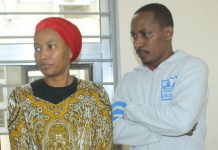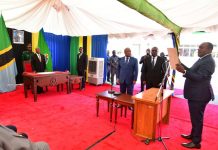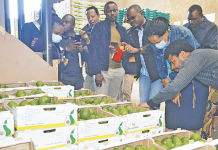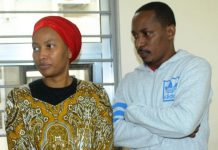THE parties to a criminal trial involving a couple, Abdul Nsembo and Shamim Mwasha, charged with trafficking in narcotic drugs, are mum on the plea-bargaining agreement arrangement initiated since November last year by one of the two suspected drug barons.
In a court session held on Friday at the Kisutu Resident Magistrate’s Court in Dar es Salaam, neither the prosecutor, for the Director of Public Prosecutions (DPP), nor the accused persons themselves were ready to disclose the developments of the plea bargaining process that was going on.
However, the prosecuting attorney, Senior State Attorney Wankyo Simon, informed Senior Resident Magistrate Godfrey Isaya that the investigations in the matter was in final stages, as areas that were required to be worked upon had been dealt with.
Under the circumstances, the trial attorney requested the court to adjourn the proceedings to another date, pending final completion of the investigations.
The magistrate granted the prosecution’s request and adjourned the trial to February 28, 2020. On November 11, 2019, Nsembo decided to surrender to the DPP, requesting him to enter into the agreement.
He informed the court that he had written a letter to the DPP in order to dispose of the matter, which has been pending since May 2019.
This is a litmus test to the DPP, as it will be the first case involving drugs to enter into such an agreement. Since then, no development has been made on the matter, despite the prosecution promising to communicate with the DPP’s office for any developments on the matter.
It is the requirement of the law under Section 194A (2) of the Criminal Procedure Act (CPA), as amended by the Written Laws (Miscellaneous Amendments) (No.4) Act of 2019, for the accused or his advocate to inform the court of such arrangement when he or she writes to the DPP for plea-bargaining process.
The couple was arraigned in connection with the case on May 13, 2019 charged with trafficking in 232.70 grams of Heroin Hydrochloride, which are narcotic drugs.
They were not allowed to enter plea to the charge because the lower court lacked jurisdiction to entertain the case in terms of section 26 (3) of the Economic and Organized Crime Control Act.
Under the circumstances, the magistrate informed the accused that their case will be tried by the Economic, Corruption and Organized Crime Division of the High Court.







